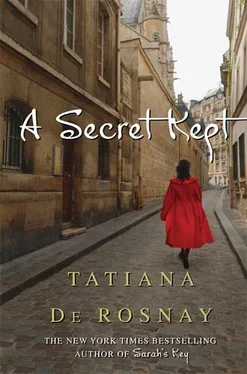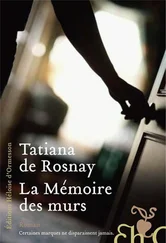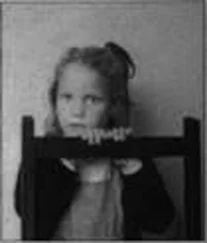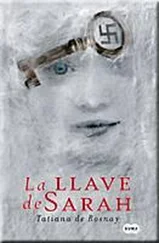The same sort of people Astrid dealt with in a rival publishing house. Antoine had never felt part of the publishing scene. He had never enjoyed the glittering literary parties where champagne flowed and writers mingled with journalists, publishers, editors, publicists. He used to watch Astrid flitter through the crowd in her pretty cocktail dress and high heels, a smile on her face, going from group to group with the same ease, the same graceful nod, while he stuck to the bar, chain-smoked, and felt miserable, out of place. After a while he had stopped going. Maybe that had been a bad idea, he now thought. Maybe his stepping out of his wife’s professional life had been his first mistake. How blind he had been. How stupid.
Tomorrow, Monday. His sad little office on the avenue du Maine. The dermatologist he shared it with, a silent, whey-faced woman whose only apparent pleasure was burning warts off her patients’ feet.
Florence, his assistant. Her plump cheeks, shiny forehead, beady black eyes, and greasy brown hair. Her unfortunate calves, her stubby fingers. Florence had been a disaster from the start. She never got anything right-although she was firmly convinced she did and that he was the one who didn’t explain things properly. She was overly susceptible, capable of suffragette-like tantrums that invariably ended with her sobbing over her keyboard.
Tomorrow, Monday, and the future dreary evenings lining up in his mind like a traffic jam on an endless highway. A replica of the past year, woven with solitude, sorrow, and self-loathing.
Had it been a good idea, coming back here? He stealthily glanced at his sister’s drawn face. Being confronted with mementos from so long ago, bringing back their mother’s eyes, her voice, her laugh, the way she flitted across this very beach. Maybe he should have left all that aside, whisked Mélanie off to Deauville, Saint-Tropez, Barcelona, or Amsterdam, anywhere, anyplace, as long as those family memories would not come back to trouble them.
He drew his arm around her shoulders and clumsily jiggled her, as if to say, “Hey, cheer up, don’t ruin it all.” She did not smile back. Instead she turned her head and looked at him searchingly, as if she were trying to decipher something behind his eyes. Then she parted her lips, about to speak, but she closed them again, shook her head with a grimace, and sighed.
“What’s up, Mel?”
She smiled, and he didn’t like that smile. It was a tight, unpleasant one. It merely stretched her lips and made her look older and sadder.
“Nothing,” she murmured against the wind. “Nothing at all.”
The morning inched by, and still she did not speak. It was only later, when they hauled their luggage into the car, that she seemed to ease up a little. When they were on their way, with him at the wheel, she made a few phone calls, even hummed along to an old Bee Gees song. He felt relief swamp him. She was all right, then. She was going to be fine, just a bad headache, just a tricky moment.

Somewhere after Nantes they stopped on the highway for a coffee and a snack. She said she felt like driving. She was a good driver, she always had been. He switched places with her, watching her slide the car seat forward, fasten her seat belt, and lower the rearview mirror to her level. So small, so dainty, her slim legs, her slender arms. So fragile too. He had always felt protective of her. Even before their mother died. During the somber, confusing years that had followed Clarisse’s death, he remembered how frightened Mélanie had been of the dark, how she always had to keep a night-light on while she slept, like Scarlett O’Hara’s little girl, Bonnie. He remembered that the constantly changing au pair girls, even the nicest ones, didn’t know how to comfort her when she had a nightmare, and only he was able to do that, cuddling her, gently singing the same lullabies Clarisse sang to lull them to sleep. Their father seldom came. He didn’t seem to be aware that Mélanie had nightmares even when the night-light was burning, and that night after night she cried out for her mother. Antoine remembered how Mélanie could not understand Clarisse’s death. She had asked, over and over again, Where is Maman? Where is Maman? When is Maman coming back? And nobody answered her, not even Robert and Blanche, or their father or Solange, or the endless string of family friends who came to the avenue Kléber after their mother’s death, who would smear lipstick on their cheeks and ruffle their hair. No one knew what to say to this desperate, frightened little girl. He knew, intuitively, at ten, what death was. He understood the finality of it, that their mother was never coming back.
Mélanie’s small, delicate hands on the steering wheel. Only one ring, on her right hand, a simple, broad gold band that had belonged to their mother. The traffic ahead was growing dense toward Angers as they made their way back to Paris. They would probably end up in a mammoth jam, he thought, his lungs aching for a cigarette.
After a long silence Mélanie spoke.
“Antoine, there’s something I need to say.”
Her voice sounded so strained that he quickly swiveled to look at her. She had her eyes on the road, but there was something tight about her jaw.
She fell silent.
“You can tell me,” he said softly. “Don’t worry.”
Her knuckles were white, he noticed. His heart started to pump a little faster.
“I’ve kept it back all day,” she said hurriedly. “Last night, at the hotel, I remembered something. Something about-”
It happened so fast he scarcely had time to draw breath. First she turned her eyes to him, dark, troubled. Then she turned her face, and it seemed to him that the car was also turning, veering right, Mélanie’s hands suddenly helpless on the wheel. Then came the sharp whine of screeching tires, the loud blast of a horn behind them, and the strange, sickening sensation of losing balance when Mélanie loomed overhead above him, her shriek thickening as they lurched to one side, the rush of air blocking his ears as the air bag bloomed painfully white into his face. Mélanie’s scream was a strangled moan, lost in the splintering of glass and crumpled metal. Then only the muffled sound of his heartbeat.

Antoine, there’s something I need to say. I’ve kept it back all day. Last night, at the hotel, I remembered something. Something about-
The doctor waits for me to speak. To answer her question: “What was she telling you?”
But how can I pronounce the words Mélanie uttered before the car veered off the highway? I don’t want to bring this up with the doctor. I don’t want to talk to anyone about what Mélanie said, not yet. My head aches, and my eyes feel itchy and red, still stinging with tears.
“Can I see her?” I ask Dr. Besson at last, breaking the silence between us. “I can’t stand sitting here and not seeing her.”
She shakes her head firmly. “You’ll see her tomorrow.”
I stare at her blankly.
“You mean we can’t leave now?”
The doctor stares back at me.
“Your sister nearly died.”
I swallow. I feel dizzy.
“What?”
“We had to operate. There was a problem with her spleen. And she broke a couple of vertebrae in her upper back.”
“Which means-what?” I stammer.
“Which means she’ll be staying here for a while. And when she can be moved, she’ll be taken to Paris in an ambulance.”
“For how long?”
“It could be a couple of weeks.”
“But I thought you said she’d be all right!”
“She is, now. She will need time to get over this. And you were lucky, Monsieur. You got away unharmed. I need to examine you now. Can you come with me, please?”
Читать дальше













